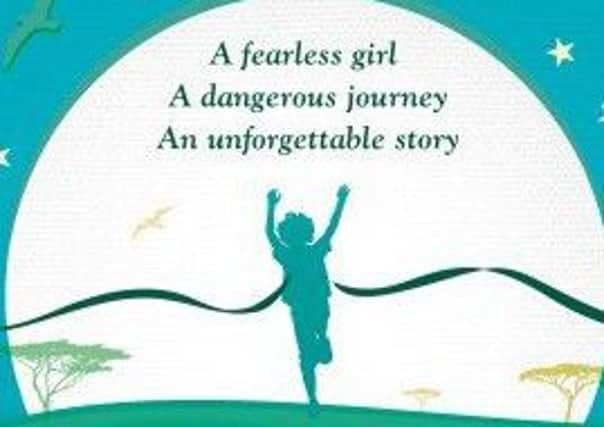Book review: Little Warrior by Guiseppe Catozella


Little Warrior by Guiseppe Catozella | Faber & Faber, 256pp, £12.99
The publication in English of Guiseppe Catozzella’s Little Warrior (Don’t Tell Me You’re Afraid in Italian) is timely at a point when refugees, turned back from legitimate routes through Europe, are once again risking their lives on treacherous boat trips to flee persecution in their home countries. Like many of those refugees, Samia is not from Syria or Iraq – the nationalities which are currently being granted asylum status by many European nations. But she is undoubtedly the victim of persecution as Somalia struggles with a civil war which stil rages to this day.
Advertisement
Hide AdA promising athlete, Samia, who sleeps with a photograph of her countryman Mo Farah by her bed, trains whenever she can. Aged eight at the beginning of the novel, she agrees to become “brother and sister” with her best friend, Ali, and loves running with him through the streets of her hometown, Mogadishu. She lives what appears to be a fairly normal life, despite the bombs, which have become a constant part of her everyday existence. Indeed, when she visits Hargeysa in the north of the country to take part in a qualifying race, she is disorientated.
“I got off the bus with the strange feeling of being in a country at peace,” she says.
Over a few short years – the book ends when she is just 21 – Samia struggles to decide whether she should embark on what she calls “The Journey”, the treacherous refugee route to Europe and freedom.
“Ever since we were children, The Journey has been a favoured topic of conversation,” she explains.
But the young Samia is certain that she will never leave Somalia.
“I dream of being a free woman too, but I’m going to realise that dream here,” she tells her sister, Hodan, who leaves years before her, ending up in the safety of Finland.
Advertisement
Hide AdAs Al Shabaab gains more power, Samia, who eventually qualifies as a competitor in the Beijing Olympics, is increasingly forced to train in secret: running after dark, sprinting under a hijab, the searing Somalian heat threatening to overcome her.
An internal battle rages in Samia between wanting to remain loyal to her homeland and her desire to succeed in her chosen vocation. Eventually, she realises the life she thought she could endure has ended. “Hopes and freedom had been wiped out in the blink of an eye,” she says.
Advertisement
Hide AdLeft with little choice, she decides to go. And this is where the book’s heartbreaking truth becomes most poignant: Little Warrior is based on a true story.
Catozzella’s novel has fictionalised the short life of runner Samia Yusuf Omar after interviewing her friends and family, a fact the reader is jarringly reminded of a when real-life pictures of Samia herself and her niece Mannaar, now living in Finland, are reproduced on the final pages.
The truth/fiction juxtaposition of the story is difficult to handle at times – especially as the novel, which won the Premio Strega Giovani Prize in 2014, is written in the first person.
We know that it has not been written by Samia herself – it cannot have been written by Samia. Yet her voice is so vivid that it is hard to imagine that the real life experience of Samia could have differed much from that of the character portrayed by Catozzella and translated so senstitively by Anne Milano Appel.
The delicate way in which Catozzella portrays the tightrope which refugees are constantly walking between the hope of a new life and the risk of losing their old one should ensure Little Warrior will be as popular in English as in its original language.